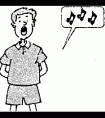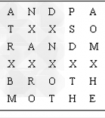选词填空。ping-pongclassroomgymreadinglibrary1.Heisinthe___________. Heisplaying ___________.2.Theyareinthe ___________. Theyaresinging.3.Sheisinthe _____-四年级英语
季节
spring summer fall(autumn) winter
方位
south north east west left right
患病
have a fever hurt have a cold have toothache have a headache have a sore throat
数词
One two three four five six seven eight nine ten eleven twelve thirteen fourteen fifteen sixteen seventeen eighteen nineteen
twenty thirty forty fifty sixty seventy eighty ninety first second third fourth fifth eighth ninth twelfth twentieth
形容词
big small long tall short young old strong thin active quiet nice kind strict smart funny tasty sweet salty sour fresh favourite
clean tired excited angry happy bored sad fine great heavy new fat happy right little lovely beautiful colourful pretty cheap expensive sick better
介词
in on under near behind next to over in front to from to for
代词
I me my we us our you your he him his she her it its they them their
动词
Play swim skate fly jump walk run climb fight swing eat like have turn buy take live teach go study learn sing dance row do homework watch TV read books cook the meals water the flowers sweep the floor clean the bedroom make the bed set the table wash the clothes do the dishes use a computer do morning exercises eat breakfast eat dinner go to school have English class play sports get up climb mountains go shopping play the piano visit grandparents go hiking fly kites make a snowman plant trees draw pictures cook dinner read a book answer the phone listen to music clean the room write a letter write an e-mail drink water take pictures watch insects pick up leaves do an experiment catch butterflies count insects collect insect collect leaves write a report play chess have a picnic get to ride a bike play the violin make kites collect stamps meet welcome thank work look help pass show use clean open close stop wait drive send feel become think wear put on go home go to bed play computer games do housework empty the trash put away the clothes get off(on) take a trip go on a trip read a magazine go to the cinema
疑问词
what(什么) what colour(什么颜色) what time(几点)
what day(星期几) how(怎样)how old(年龄多大,几岁)
how many(多少) how much (多少钱) how tall (多高)
how heavy(多重) how long(多长) how big(多大) how large(面积多大) who(谁) when(什么时候)
whose (谁的) where(在哪里) why(为什么)
which(哪一个)
be动词
am is are was were
助动词:do does did
情态动词
can should would will
考点名称:现在进行时,现在分词
现在进行时:
表示动作发生的时间是“现在”,动作目前的状态是“正在进行中”。所谓“正在进行中”,是指在谈到这件事的时候,这个动作还在进行中。
现在进行时由“系动词am/ is/ are+动词-ing形式”构成。
例:We are reading the text. 我们正在读课文。
My sister is working in a hospital. 我的妹妹在医院工作。
They are watching TV now. 他们正在看电视。
What are you doing, Li Lei? 你现在正在干什么,李雷?- 现在进行时的基本用法:
A表示现在( 指说话人说话时) 正在发生的事情。
例:We are waiting for you.
B. 表示现阶段正在进行的动作,说话时未必正在进行。
例:Mr. Green is writing another novel.
(说话时并未在写,只处于写作的状态。)
例:She is learning piano under Mr. Smith.
C.已经确定或安排好的但不确定会不会发生的将来活动。
I'm leaving for a trek in Nepal next week.(我下周要去尼泊尔旅行)
We're flying to Paris tomorrow.(我们明天乘飞机去巴黎) 一般现在时与现在进行时的区别:
一、准确理解两种时态的主要含义:
(一)一般现在时:
1.表示事物的本质特性或客观存在,没有时限性。
The table ____ soft。(feels) 表特性特征。
Japan ___ in the east of China。 (lives) 表客观事实
2.现阶段经常性、习惯性的行为,可带频率时间。
The shop closes at 7:30 p.m.
Father doesn’t smoke. (习惯)
3.表说话时的状态,感觉或结果,一般用状态动词,如:It doesn’t matter. Does it hurt? (感觉结果)
4.特殊用法:
-在条件、时间、让步从句中用现在时代替将来。
-If you go there,I’ll help you.
—用在begin,come,go,leave,return,open,close 等短暂谓语动词表规定计划。
The plane takes off at 11:30. (不受主观支配的计划)
-在剧本、解说、标题或there(here)开头的句中表进行
There goes the bell/Here comes Mr.Wang.
I declare the meeting opens.(正在宣布)
He meets the ball and hits back to No.2 (正在发生)
(二)现在进行时:
1.说话时正在发生,进行的动作
Look! Dark clouds are gathering . (正在发生)
2.表现阶段正在进行,但此刻不一定正在进行的事。
He usually gets up at 6:00,but this week he is getting up at 7:00. (现阶段正在进行,但说话时不一定在起床)
3.现在进行时的特殊意义
-表示主观打算常用于 go,come,leave,start,begin 等,位移、趋向动词。
How long are you staying here (准备停留)
-表示眼前刚过去的语意即“话音刚落”,适用于tell,say,talk,discuss ….
You don’t believe it You know I’m telling the truth.
-表示安慰、关心、喜欢、讨厌等感情色彩。
He is always making noises in class. (讨厌)
-在条件、时间、让步状语从句中表示将来正在进行。
Don’t bother him if he is reading this time tomorrow.二、严格区分进行时与一般时的语义
1.持续动词的一般时表持续情况,经常性,习惯性行为或客观存在的事实,进行时表暂时性或有限时刻的持续。
2.短暂动词的一般时叙述事实,特征,能力而短暂动作进行时描述反复发生,即将发生或刚开始行为。
3.短暂动词和静态动词一般时表示实际情况客观状态、结果、特征、特性,进行时表未完成含开始或渐进之意。
The bus stops. (车停了-事实)
The bus is stopping. (渐渐停下来)
I love the job. (静态事实)
I am loving the job. ( 渐渐爱上了)
4.come,go,leave,start,return,move,reach,sail,fall 等一般时态表客观规定计划,进行时表主观打算推测。
Flight 254 leaves at 5:30. (表客观规定计划)
The plane is taking off an hour later.(主观判断)
5.现在进行时带always,continually, constantly, for ever等频率副词表感情色彩,一般现在时则没有此用法。现在进行时的构成是:
主语+be+v.ing〔现在分词〕形式
人称
构成形式
第一人称单数
I+am+ing.
第一人称复数
We+are+ing.
第二人称单(复)数
You+are+ing
第三人称单数
He(She,it)+is+ing
第三人称复数
They+are+ing
句式
肯定句
主语+be(is/am/are)+现在分词
否定句
主语+be(is/am/are)+not+现在分词
一般疑问句
(is/am/are)+主语+现在分词
be特殊疑问句
特殊疑问词+相应be动词+主语+现在分词+Sth?
间接引语中改为过去进行时。
现在分词的构成:

![读句子,选出正确的图。Whatabigwatermelon![ ]A.B.-四年级英语](http://www.00-edu.com/d/file/ks/4/1/7/2019-08-11/small4a305321f43da5b832321508021a7edb1565477037.gif)


![根据图片,选择正确答案。1. Tom sends nine postcards to his _____________ .[ ]A. brotherB. motherC. father2. Where do I put the _____________ ?[ ]A. stamp-五年级英语](http://www.00-edu.com/d/file/ks/4/1/7/2019-08-11/smallb78172089d6038aa813d3891109792701565492155.gif)

